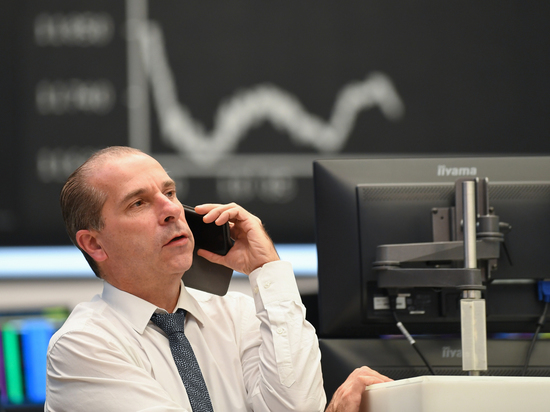How this might affect Russia
The words of the prophets tend to come true. The famous American economist Nouriel Roubini, who predicted the recession of 2008-2009, described the scenario of a probable credit crisis in the United States. Meanwhile not all the interviewed «MK» experts support this prediction. And even more so – see no serious threats to either the world or the Russian economy.

In a commentary to Fox Business, Roubini (an NYU economics professor with the stern nickname Doctor Doom) said that «a large part of the US banking system» will be engulfed in the crisis. The presenter asked him about the future of First Republic Bank, which recently announced the suspension of quarterly dividend payments. The bank's shares have fallen over 80% since March, with two-thirds of its deposit base uninsured.
Roubini called this the source of a fundamental problem leading to an aggravation of the situation and fraught with a recession in the United States. «Regional banks act as significant lenders for households on mortgage loans, for small and medium-sized businesses, for commercial real estate,» he noted. Silicon Valley Bank (SVB), which catered primarily to technology startups and related investors. Following closed two more credit organizations – Signature Bank and Silvergate Bank. President Joe Biden said that the country's financial system is not in danger, although there are still reasons for concern.
“The threat of the worst-case scenario being realized is still great: a month ago, a list of potentially problematic banks (numbering about 50) appeared in the States, which can also “fall in,” says Artem Deev, head of the analytical department at AMarkets. – And the fact that the world is on the verge of a financial crisis, which will gradually develop into a global economic one, – now few people doubt it. A lot of people, besides Roubini, speak out about this, including Russian economists.
The recession of 2023 may turn out to be larger than the events of 2008-2009, when the recession was relatively shallow and affected global finance to a greater extent, rather than the entire economy. This time it will be different, because, in addition to banking problems, there are a number of other risk factors — high inflation, high central bank rates, sanctions, trade wars, rising prices for raw materials, geopolitical tensions.
All this situation will affect Russia with its resource-based economy, first of all, in terms of reducing export earnings — due to a decrease in external demand for energy resources. The budget deficit will grow, which means, Deev believes, it will be necessary to consolidate costly items (reduce costs) as early as 2024.
But financial analyst Sergei Drozdov does not see any particular risks for the Russian Federation. Every cloud has a silver lining, he argues: since February last year, the domestic economy has ceased to be part of the Western one.
In the Russian markets – currency, debt and stock – there are no longer foreign players whose share previously exceeded 50%. Among them were large American funds, for example, Goldman Sacks and Black Rocks (the latter was among the largest buyers of Russian government debt). They acted mainly according to speculative schemes: they bought currency on a positive conjuncture, sold – on the slightest negative, of course, because of this, the markets were in a fever.
And today, when non-residents are blocked, there is no need to worry about the stability of the financial system, the value of shares of credit institutions. When in the USA they began to «fall» regional banks, this did not affect the markets in Russia at all.
“As for the global recession, such a scenario is unlikely today,” Drozdov is sure. — The FRS at its May meeting will certainly raise the rate by another 25 basis points (0.25%). The American regulator pursues a transparent policy, informing investors in advance about its next steps, so that there are no surprises, as in 2008.
At that time, neither the Fed nor other central banks had experience in quickly resolving acute problems in the markets . It is not correct to draw any parallels between the then situation and the present. As the covid year showed, the Fed has learned from the past: as soon as the stock exchanges began to fall, it very quickly agreed to an unlimited bailout package, having previously cut the rate to zero. Even now, in the spring of 2023, the regulator promptly responded to the story with regional banks by providing the banking sector with emergency loans.
Theoretically, if the global crisis does take place in one form or another, the oil quotes, although not as strong as in 2008 and 2020. That is, not less than $60 per barrel of Brent: OPEC simply will not allow a further fall, Drozdov sums up. The logic of manufacturers is clear: they don't want to sell their product at a lower price to those who accelerate inflation in the world.


